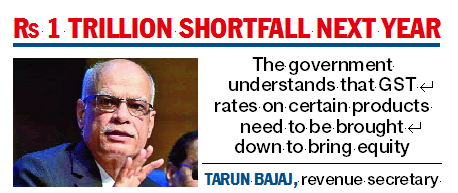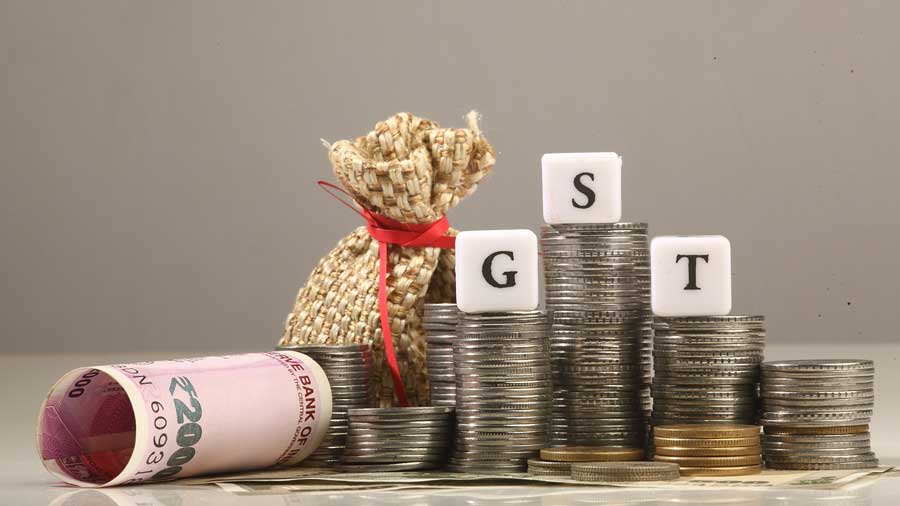The Centre is mulling changes in the goods and service tax (GST) regime which could include a rejig of rates and measures designed to increase revenue collections.
The changes are being planned because the time period for the payment of compensation for any revenue shortfall that states suffer runs out by the end of June.
When the GST regime came into effect in June 2017, states were promised a 14 per cent annual increment in their revenues with 2015-16 serving as the base year for calculations. Any shortfall was supposed to be paid out of the compensation cess.
Revenue secretary Tarun Bajaj has said that states could face a GST revenue shortfall of Rs 1 lakh crore in the next fiscal. Under the system that is currently in place, it is obliged to compensate for the shortfall only till the end of June.
“We need to keep this in mind when we tweak the GST rates,” Bajaj said at an interactive session on Union Budget 2022-2023 organised by CII.
“The government understands that GST rates on certain products need to be brought down to bring equity,” he added.
The finance ministry has set up two committees of state finance ministers that have been asked to suggest reworked rate slabs, review the list of GST-exempt items, and identify potential areas of tax evasion.
Officials said GST revenue collections were expected to increase with the greater formalisation of the economy, rationalisation of tax rates, correction in the inverted duty structure, and the shift towards a revenue neutral rate of 15 per cent.
“Inspite of the fact that capital gains tax rates are much lower at 10 per cent and 15 per cent on the stock market for short term and long term, we are expecting an amount of Rs 60,000-Rs 80,000 crore via capital gains this fiscal. Last year, this was about Rs 6,000-Rs 8,000 crore. This has made a huge difference to the budget projections on tax collections this fiscal. Now, with the prospects of the US Fed taper, one does not know how markets will behave in the coming days or in the next fiscal,” he said.
If the corporate fundamentals are good, then markets should do well and capital gains tax collections will also rise, he added.

In the last two years, the government borrowed Rs 2.69 lakh crore and passed it on to states. The cess is expected to be extended for the limited purpose of enabling the states to use the proceeds to pay back these loans.
“We are open to look at the suggestions of the restaurant industry,” Bajaj said. The restaurant industry has said they were ready to accept a higher rate if they were granted the benefit of input tax credit.
Input Tax Credit refers to the tax already paid by a person at time of purchase of goods and services. This amount is allowed as a deduction before the entity pays its GST tax.
At present, restaurants in hotel premises with room rates of less than Rs 7500 per unit per day attract 5 per cent GST without ITC. Restaurants in hotel premises with a room rate of Rs 7500 and above per unit per day (even for a single room) would attract GST of 18 per cent with maximum ITC.
Bajaj also added that the finance ministry will have to go back to the GST Council if it has to tinker with the coal cess.
Capital gains
Bajaj said the government is open to idea of “tinkering” with the rates and the holding period for computation of capital gains tax on shares, debt and immovable property, in an effort to make it simple.
Under the Income Tax Act, gains from sale of capital assets, both movable and immovable, are subject to ‘capital gains tax’. The Act, however, excludes movable personal assets such as cars, apparels, furniture from this tax.
Bajaj said the government expects to get a “good amount” of revenue from capital gains tax during this fiscal on the back of sharp rise in stock markets.











